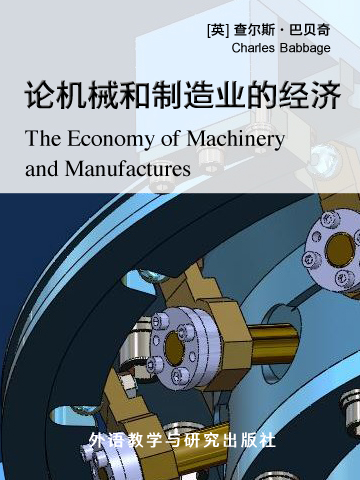There exists, perhaps, no single circumstance which distinguishes our country more remarkably from all others, than the vast extent and perfection to which we have carried the contrivance of tools and machines for forming those conveniences of which so large a quantity is consumed by almost every class of the community. The amount of patient thought, of repeated experiment, of happy exertion of genius, by which our manufactures have been created and carried to their present excellence, is scarcely to be imagined. If we look around the rooms we inhabit, or through those storehouses of every convenience, of every luxury that man can desire, which deck the crowded streets of our larger cities, we shall find in the history of each article, of every fabric, a series of failures which have gradually led the way to excellence; and we shall notice, in the art of making even the most insignificant of them, processes calculated to excite our admiration by their simplicity, or to rivet our attention by their unlooked-for results.
In this famous book, first published in 1832, Charles Babbage (1791-1871), the mathematician, philosopher, engineer and inventor who originated the concept of a programmable computer, surveys manufacturing practices and discusses the political, moral and economic factors affecting them. The book met with hostility from the publishing industry on account of Babbage's analysis of the manufacture and sale of books. Babbage describes the many different printing processes of the time, analyses the costs of book production and explains the publication process, before discussing the 'too large' profit margins of booksellers. Babbage succeeded in his aim 'to avoid all technical terms, and to describe in concise language', making this an eminently readable historical account. His analysis and promotion of mechanisation and efficient 'division of labour' (still known as the 'Babbage principle') continue to resonate strongly for modern industrial engineering.
- Economy of Machinery and Manufactures Section I
- The Economy of Machinery and Manufactures Section II
- The Economy of Machinery and Manufactures Section III
- 书评 写书评
- 笔记
-
书评加载中...





 京公网安备 11010802032529号
京公网安备 11010802032529号
笔记加载中...